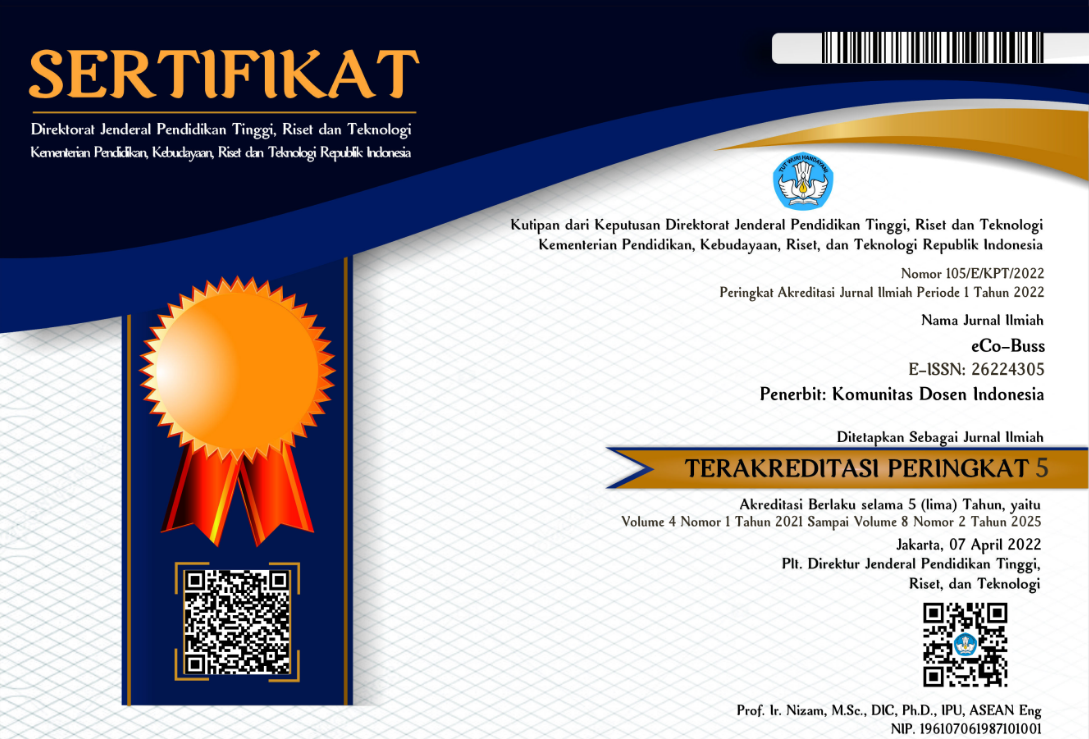Determinants and Consequences of Executive Compensation: The Case of Emerging Market
DOI:
https://doi.org/10.32877/eb.v7i1.1351
Keywords:
social stigma, women as chief director, institutional ownership, company performance, tax aggressiveness, financial reporting fraud, executive compensation
Abstract
Executive compensation is an important aspect of corporate governance subject. This compensation is considered an internal mechanism of corporate governance. This adequate compensation reduces opportunistic executive behavior and minimizes agency problems and costs. Academicians and practitioners have given attention to this aspect. However, there is a lack of studies investigating executive compensation using different economic and corporate governance systems, such as in Indonesia. Therefore, this study investigates executive compensation's determinants and consequences using consumer goods companies. With 36 final samples or 144 observations, simple, logistic, and multivariate regression is employed. The result shows that social stigma does not affect executive compensation. However, women as chief executive directors have a negative effect on executive compensation. Hence, institutional ownership has a positive association with executive compensation. Of the three consequences proposed as executive compensation, only tax aggressiveness is the successful consequence. The other two consequences (company performance and financial reporting fraud) do not significantly relate to executive compensation. This finding has practical and theoretical implications, which are discussed in detail in the paper.
Downloads
Downloads
Published
How to Cite
Issue
Section
License
Copyright (c) 2024 Herifal Ikhsan, Zaitul zaitul, Desi Ilona, dandes rifa, yunilma Yunilma

This work is licensed under a Creative Commons Attribution-ShareAlike 4.0 International License.






 DOI :
DOI :
 Abstract views: 161
/
Abstract views: 161
/  PDF downloads: 87
PDF downloads: 87

